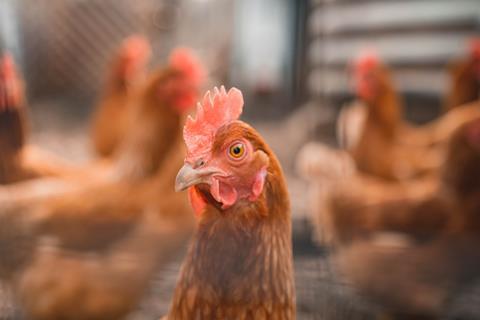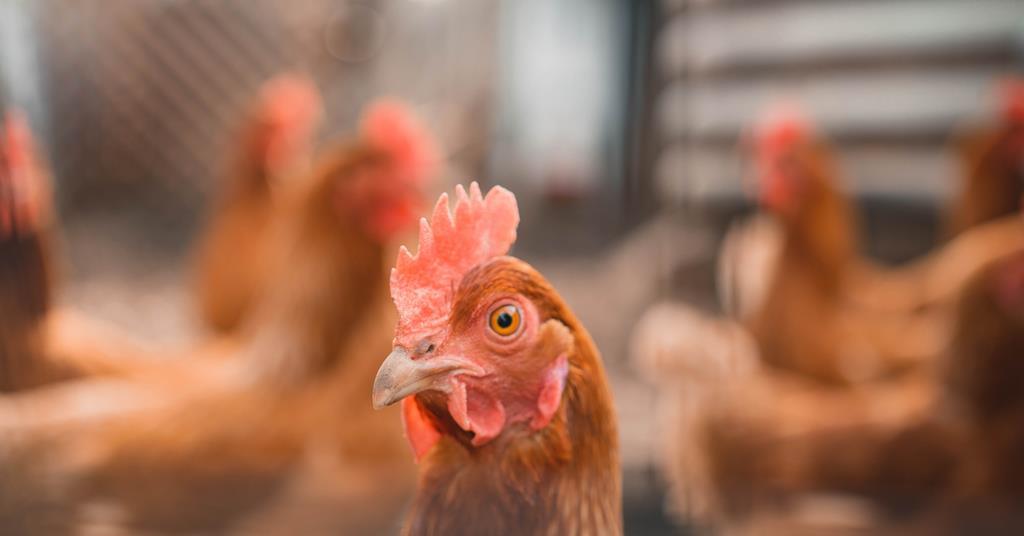
Here’s a fact not often discussed: food businesses have more power to stop animal cruelty than almost anyone else. The supermarket and restaurant sector can transform the future of farmed animal welfare in this country.
This is because hundreds of millions of animals are raised in the UK to stock supermarket shelves and restaurant larders. None more so than chickens. Over a billion chickens are killed for food here each year. That’s fourteen chickens for every human being and six for every wild bird in the UK.
These animals experience sensations and emotions, just like you and I. These faculties evolved in chickens for the same reasons they evolved in us: to keep us out of danger and reward adaptive behaviour.
So, what are they experiencing?
Animal suffering
The answer, for the most part, is suffering. Around 90% of chickens raised for meat are fast-growing breeds known as ‘Frankenchickens’. They grow so large, so quickly, that their bodies buckle under the strain. These birds suffer from high rates of lameness and disease, direct consequences of being bred to grow 400% faster than in the 1950s.
Laying hens are still confined to dismal wire cages, with barely more than an A4 sheet of space per bird. Their bones weaken from lack of movement. They can barely even stretch out their wings.
Many companies understand these conditions are unacceptable. Public sentiment is clear: according to Bryant Research, 94% of people in the UK oppose caged hens.
Years ago, every UK supermarket pledged to stop selling caged eggs by the end of this year. Hundreds of companies have committed to ending their use of Frankenchickens by 2026. But now, as deadlines approach, the chickens are coming home to roost.
These promises matter. They must be honoured.
Retailer progress
Animal charities want to work with businesses to secure progress for animals, and we’ve celebrated real progress. The Humane League UK spent years campaigning against Morrisons, Lidl, and Co-op. All three of these have now given chickens 20% more space. These are good-faith steps in the right direction.
Waitrose and M&S, meanwhile, have shown true leadership in stopping the use of Frankenchickens altogether.
But when a company like Iceland, which has had nine years to eliminate cages, chooses to abandon its promise to help hens, it leaves charities with no choice but to hold them to account.
How about Co-op, whose members have now voted for a second time to get rid of Frankenchickens? Despite two years of Co-op’s excuses, the vote was still won with over 90% in favour.
Or take KFC, which promised to stop using Frankenchickens by 2026, only to backtrack at the Egg & Poultry Industry Conference last year. By 2026, it will have had seven years to act – years during which it was widely praised for its supposed leadership on welfare.
Meanwhile, the pieces of chicken in its bargain buckets will be from animals often forced to lie in their own waste, their feet and chests burned by ammonia. They will have higher rates of white striping, fatty streaks that run through rapidly-grown meat.
At THL UK, we want to partner with companies that are serious about change. Together, we can design new roadmaps to improve the lives of millions of animals.
Those companies serious about helping animals will be hailed in the future as on the right side of history, and thanked by customers. Hypocrisy and cruelty are not beloved by the general public.
Supermarkets and restaurants can do something extraordinary: they can help build a food system that respects sentient life. Committing to a better world for animals is a good first step. Now is the time for action.
Sean Gifford, MD of The Humane League UK
$(document).ready(function() {
if (window.location.pathname == ‘/advertise’) {
$.getScript(“https://tag.clearbitscripts.com/v1/pk_6c1cac1dc287e45bfaab20867b193dcb/tags.js”);
console.log(“Clearbit Loaded”);
}
});
